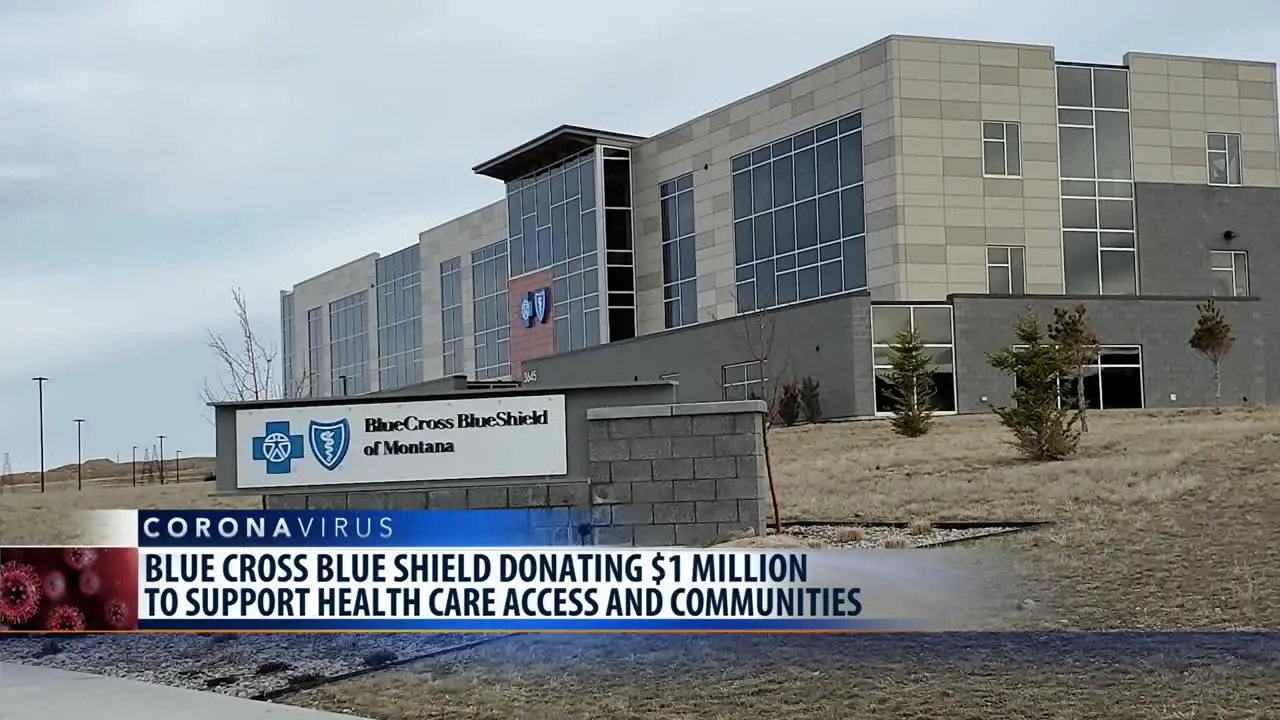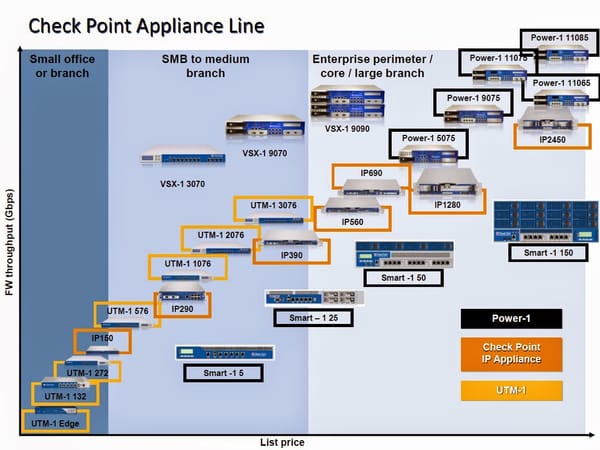Blue Cross Blue Shield of Montana Data Breach: 462,000 Members Exposed in Conduent Cyberattack

Montana State Investigation Launched as Third-Party Vendor Breach Impacts One-Third of State's Population
October 26, 2025 — Blue Cross Blue Shield of Montana (BCBSMT) has become the latest healthcare organization to disclose a massive data breach affecting approximately 462,000 current and former members—nearly one-third of Montana's entire population. The breach stemmed from a cyberattack on Conduent Business Services, a New Jersey-based third-party vendor that provides payment processing, document management, and back-office support services to the insurer.

Timeline of the Breach
The incident timeline reveals significant delays in disclosure that have drawn scrutiny from Montana state regulators:
- October 21, 2024: Unauthorized access to Conduent's systems begins
- January 13, 2025: Conduent discovers the cyber incident and reports operational disruption
- April 9, 2025: Conduent discloses the cyberattack to the U.S. Securities and Exchange Commission
- September 23, 2025: BCBSMT completes its investigation to determine affected members
- Early October 2025: BCBSMT notifies Montana State Auditor's Office
- October 8, 2025: Conduent notifies California Attorney General of breach affecting approximately 4.3 million individuals
- October 24, 2025: Member notification letters begin
The nearly 10-month gap between breach discovery and member notification has become a central focus of investigations by Montana Commissioner of Securities and Insurance James Brown.
What Data Was Compromised
The stolen data includes highly sensitive personal and protected health information (PHI):
- Full names
- Social Security numbers
- Dates of birth
- Home addresses
- Phone numbers
- Medical service details including treatment and diagnosis codes
- Provider names
- Claim amounts
- Billing and payment information
This comprehensive dataset provides cybercriminals with everything needed for identity theft, medical fraud, and financial crimes. Montana State Auditor James Brown described the breach as having "jaw-dropping and far-reaching consequences" for state residents.
Understanding the Business Associate Relationship
BCBSMT contracted with Conduent Business Services, LLC to handle critical backend operations including payment processing, document processing, and mailroom services. Under the Health Insurance Portability and Accountability Act (HIPAA), Conduent operates as a "business associate" of BCBSMT, meaning it has access to protected health information to perform services on behalf of the covered entity.
This relationship creates a complex web of liability. While BCBSMT's own systems were not directly compromised, the insurer remains responsible for ensuring its business associates maintain adequate security controls to protect member data. The breach highlights the growing risk that third-party vendors pose to healthcare organizations—a vulnerability that continues to be exploited by sophisticated threat actors.
The Broader Conduent Breach: A Multi-Client Catastrophe
Blue Cross Blue Shield of Montana represents just one victim in what appears to be a far larger compromise of Conduent's client ecosystem. The company reported that approximately 4.3 million individuals were affected across multiple clients, though Conduent has not publicly disclosed a complete list of impacted organizations.
The breach first came to public attention when state agencies in Oklahoma and Wisconsin reported service disruptions in mid-January 2025:
- Wisconsin's Department of Children and Families experienced delays in processing child support payments
- Oklahoma Human Services reported outages affecting customer service lines for the state's food assistance program
Conduent provides services to over 600 government and transportation agencies across 46 U.S. states and counts half of Fortune 100 companies as clients. The company supports approximately 100 million U.S. residents across various government health programs, making the potential scope of this breach enormous.
Other Blue Cross Blue Shield Plans Potentially Affected
As of this writing, no other state Blue Cross Blue Shield organizations have publicly disclosed being affected by the Conduent breach. However, given Conduent's extensive client base in the healthcare sector—the company serves nine of the top U.S. health plans—security experts believe additional healthcare clients may have been impacted but have not yet completed their data review processes or made public disclosures.
The lack of a comprehensive client list from Conduent has left considerable uncertainty about the full scope of affected organizations and individuals. The breach is notably absent from the U.S. Department of Health and Human Services Office for Civil Rights breach portal, which tracks healthcare breaches affecting 500 or more individuals, though this may be due to the government shutdown that has prevented updates since September 24, 2025.
State Investigation and Potential Legal Consequences
Montana Commissioner of Securities and Insurance James Brown has launched a full-scale investigation into the breach, with his office sending an 11-question inquiry to BCBSMT President Lisa Kelley on October 16, 2025. The investigation focuses on:
- Why BCBSMT delayed reporting the breach to state regulators
- Internal privacy and security policies
- The complete timeline of the breach
- Steps being taken to prevent future incidents
Montana law requires companies to report data breaches involving residents' personal information "without unreasonable delay." Brown's office has the authority to impose fines of up to $25,000 per violation if the investigation finds that BCBSMT or Conduent failed to meet legal obligations to protect data.
"This breach is not just a technical lapse. This is a deeply disturbing incident with far-reaching and jaw-dropping consequences for our citizens," Brown stated. "Montanans have every right to expect their personal data, especially sensitive health information, to be protected by the entities they trust."
Class Action Lawsuit Filed
On October 24, 2025, a class action lawsuit was filed against BCBSMT, alleging the company:
- Failed to adequately secure members' personal information
- Knew about the breach for months but failed to promptly notify affected members
- Did not implement sufficient safeguards to protect sensitive data from unauthorized access
The lawsuit seeks compensation for affected members for invasion of privacy, lost time and costs associated with the breach, increased spam and fraud calls, and risk of identity theft.
Technical Analysis: The Anatomy of the Attack
While Conduent has not disclosed specific technical details about the attack methodology, several indicators suggest this was likely a ransomware incident:
- Operational Disruption: Conduent reported "operational disruption" when announcing the breach—terminology typically associated with ransomware attacks
- Extended Access Period: The threat actor maintained access to Conduent's environment for nearly three months (October 21, 2024 - January 13, 2025)
- Data Exfiltration: Conduent confirmed that the attacker "obtained some files" associated with a limited number of clients
- Rapid Recovery: Systems were restored "within days, and in some cases, hours"—consistent with ransomware recovery procedures
- No Public Data Leak: Conduent stated the exfiltrated data has not been released on the dark web or publicly, suggesting possible ransom payment
Conduent worked with Palo Alto Networks' Unit 42 on the breach investigation and notified federal law enforcement authorities. The company has cyber insurance coverage and reported approximately $25 million in direct response costs in the quarter ending June 30, 2025.
Conduent's History of Breaches
This is not Conduent's first rodeo with cybercriminals. In June 2020, the company confirmed a ransomware attack by the Maze gang, which subsequently published stolen documents after breaching Conduent's European operations. The recurrence of a major breach just five years later raises serious questions about whether the company implemented sufficient security improvements following the previous incident.
Blue Cross Blue Shield's Troubling Breach History
This Montana incident is far from the first time Blue Cross Blue Shield organizations have experienced significant data breaches. The BCBS network—comprising 34 independent companies operating across all 50 states—has faced a troubling pattern of cybersecurity incidents in recent years:
Major Historical Breaches
Anthem Blue Cross (2015) — The most devastating breach in BCBS history occurred when hackers stole personal information of approximately 78.8 million former and current policyholders nationwide, including names, Social Security numbers, dates of birth, addresses, and employment information. This remains one of the largest healthcare breaches ever recorded, with 13.5 million California residents alone affected.
Blue Shield of California MOVEit Breach (2023) — In May 2023, Blue Shield of California suffered a breach through a vendor's MOVEit server, affecting approximately 78.8 million individuals and exposing names, Social Security numbers, subscriber ID numbers, and vision-related treatment information. This was part of the widespread MOVEit mass exploitation campaign that impacted hundreds of organizations globally.
Blue Shield of California Google Analytics Incident (2025) — Between April 2021 and January 2024, Blue Shield of California's Google Analytics was misconfigured, allowing member data including protected health information to be shared with Google Ads for targeted advertising campaigns, affecting 4.7 million individuals. This breach was covered in our latest global cybersecurity breaches roundup.
Blue Cross Blue Shield of Massachusetts MOVEit Breach (2023) — Over 804,000 people had their personal and health information compromised through vendor National Account Service Company (NASCO) in the MOVEit breach, with notification delayed more than three months after discovery.
Blue Cross and Blue Shield of Illinois/TMG Health (2023) — In June 2023, BCBS customers were exposed through third-party administrator TMG Health, with attackers accessing Social Security numbers, birth dates, home addresses, medical service information, and bank information.
Blue Cross Blue Shield of Tennessee (2023-2024) — BCBST experienced suspicious login attempts to its online member portal in December 2023 using stolen credentials from an unknown source, and later discovered a similar incident had occurred in August 2023.
Blue Cross Blue Shield of Texas (2024-2025) — Between November 8, 2024 and March 5, 2025, unauthorized activity on the Blue Access for Members portal potentially exposed member data.
Arkansas Blue Cross and Blue Shield/Healthmine (2024) — In August 2024, vendor Healthmine's Blue Wellness Rewards portal was breached when unauthorized persons illegally redeemed digital gift cards, exposing member names, addresses, email addresses, dates of birth, and prescription histories.
The Pattern is Clear
These breaches reveal several concerning patterns across the Blue Cross Blue Shield network:
- Third-Party Vendor Vulnerability: The majority of recent breaches originated from business associates and vendors rather than direct attacks on BCBS systems themselves
- Delayed Notification: Multiple incidents show significant time gaps between breach discovery and member notification
- Credential-Based Attacks: Several breaches involved stolen or compromised login credentials
- Widespread Impact: When a shared vendor is compromised, multiple BCBS organizations can be affected simultaneously
The Montana Conduent breach fits squarely within this pattern—once again, a third-party vendor compromise has exposed hundreds of thousands of BCBS members' sensitive data.
Healthcare Sector Under Siege
The BCBSMT breach continues a devastating trend of healthcare data breaches that have plagued the sector throughout 2025:
- Change Healthcare/UnitedHealth Group: Potentially affecting up to 190 million individuals, one of the largest healthcare breaches in U.S. history
- Yale New Haven Health: 5.5 million patients affected in March 2025
- Blue Shield of California: 4.7 million individuals impacted by Google Analytics misconfiguration
- Covenant Health: 7,864 individuals affected by Qilin ransomware attack in May 2025
Healthcare organizations remain the most expensive sector for data breaches, with average costs of $7.42 million per incident according to IBM's 2025 Cost of a Data Breach Report. Healthcare breaches take the longest to identify and contain at 279 days on average—five weeks longer than the global average across all industries.
The sector's vulnerability stems from multiple factors:
- Valuable Data: Medical records fetch premium prices on the dark web ($40-$200 per complete identity)
- Operational Criticality: Healthcare providers often pay ransoms to restore critical patient care systems
- Complex IT Environments: Multiple interconnected systems and legacy infrastructure
- Extensive Third-Party Relationships: Heavy reliance on business associates and vendors
- Regulatory Complexity: HIPAA requirements add layers of compliance obligations
What Affected Individuals Should Do
BCBSMT and Conduent are offering 12 months of complimentary credit monitoring services to individuals whose Social Security numbers were compromised. However, security experts recommend taking additional protective measures:
Immediate Actions
- Review Explanation of Benefits (EOB) statements carefully for any unauthorized medical services
- Monitor credit reports from all three major credit bureaus (Equifax, Experian, TransUnion)
- Place fraud alerts on credit reports to make it harder for identity thieves to open accounts
- Consider a credit freeze for maximum protection against new account fraud
- Watch for phishing attempts that reference this breach to steal additional information
Long-Term Vigilance
Medical identity theft can have consequences that persist for years:
- Incorrect medical information in your health records could lead to dangerous treatment decisions
- Fraudulent medical claims can exhaust insurance benefits and create collection issues
- Tax fraud using stolen Social Security numbers
- New credit accounts opened in your name
Request a copy of your medical records annually and review them for accuracy. Report any suspicious activity to your insurance provider, healthcare provider, and law enforcement immediately.
Regulatory and Industry Implications
The BCBSMT breach highlights critical weaknesses in current healthcare data protection frameworks:
Business Associate Accountability Gap
While HIPAA requires business associates to implement safeguards, enforcement remains inconsistent. The nearly three-month window during which Conduent's systems were compromised without detection suggests fundamental failures in security monitoring and incident response capabilities.
Breach Notification Delays
The significant time lag between breach discovery (January 2025) and member notification (October 2025) exposes a critical problem: organizations can complete lengthy "data review" processes before triggering notification requirements, leaving affected individuals vulnerable for extended periods.
Multi-State Vendor Risk
When a single vendor serves clients across multiple states and sectors, a breach can cascade across jurisdictions with varying regulatory requirements and enforcement capabilities. The lack of federal coordination in these multi-state incidents creates gaps in oversight and accountability.
Lessons for Healthcare Organizations and Vendors
This incident provides several crucial lessons for healthcare organizations and their business associates:
For Healthcare Organizations
- Vendor Risk Management: Implement robust third-party risk assessment programs including:
- Annual security audits of business associates
- Contract provisions requiring breach notification within 24-48 hours
- Right to audit security controls
- Cyber insurance verification
- Incident Response Planning: Develop detailed playbooks for third-party breaches including:
- Clear communication protocols
- Data review processes that don't delay notification
- Member communication strategies
- Regulatory notification procedures
- Data Minimization: Limit the amount of PHI shared with business associates to only what's necessary for specific services
For Business Associates
- Security Monitoring: Implement 24/7 security operations center (SOC) capabilities to detect breaches within hours, not months
- Network Segmentation: Isolate client data to prevent a single breach from affecting multiple clients
- Zero Trust Architecture: Assume breach and verify every access request
- Incident Response Retainers: Maintain relationships with forensic firms for rapid response
The Bottom Line
The Blue Cross Blue Shield of Montana breach represents more than just another healthcare data compromise—it exemplifies the systemic vulnerabilities inherent in the modern healthcare ecosystem's reliance on third-party vendors. With 462,000 Montanans potentially exposed to identity theft and medical fraud, and millions more affected through other Conduent clients, this incident demands a fundamental reassessment of how healthcare organizations manage vendor relationships and protect patient data.
For Montana residents affected by this breach, the impact extends far beyond the 12 months of credit monitoring being offered. Medical identity theft can persist for years, affecting credit scores, medical treatment, and financial stability. Affected individuals must remain vigilant and take proactive steps to protect themselves.
For the healthcare industry, the message is clear: the security of third-party business associates can no longer be treated as someone else's problem. As Commissioner Brown stated, "Transparency and accountability are not negotiable."
Additional Resources
- Montana Commissioner of Securities and Insurance Website
- Understanding Third-Party Vendor Risks
- HIPAA Compliance Framework
- Healthcare Breach Cost Analysis
- Recent Healthcare Cybersecurity Incidents
This article will be updated as more information becomes available about affected organizations and the ongoing investigation.
About Breached.Company: Breached.Company provides comprehensive coverage of data breaches, cyberattacks, and privacy incidents affecting organizations worldwide. Our mission is to keep businesses and individuals informed about the evolving threat landscape and provide actionable insights for improving cybersecurity posture.






